Search Results for: Spiders
Skip to resultsCan’t find what you’re looking for? Visit our FAQ page.
1,175 results for: Spiders
-
 Animals
AnimalsThe first known scorpion to live with ants carries mini hitchhikers
Small arachnids hitch a ride on the scorpion, possibly to get inside food-rich ant nests.
By Jake Buehler -
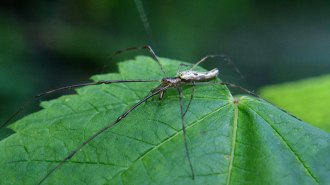 Animals
AnimalsHere’s how spiders that go overboard use light to find land
When elongate stilt spiders fall into water, they head for areas that don’t reflect light in the hope of finding dry land, experiments suggest.
-
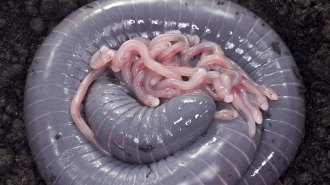 Life
LifeThis is the first egg-laying amphibian found to feed its babies ‘milk’
Similar to mammals, these ringed caecilians make a nutrient-rich milk-like fluid to feed their mewling hatchlings up to six times a day.
By Jake Buehler -
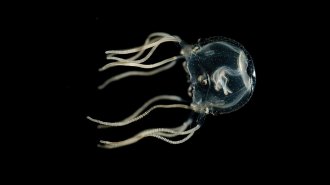 Animals
AnimalsThese are our favorite animal stories of 2023
Spiders that make prey walk the plank, self-aware fish and a pouty T. rex are among the critters that enchanted the Science News staff.
-
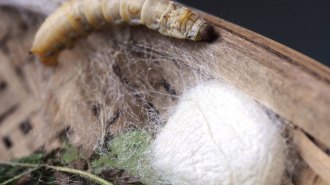 Animals
AnimalsIn a first, genetically modified silkworms produced pure spider silk
An effort to engineer silkworms to produce spider silk brings us closer than ever to exploiting the extraordinary properties of this arachnid fiber.
-
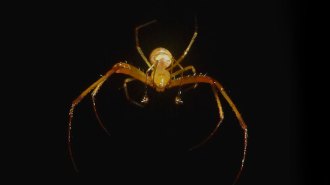 Animals
AnimalsSome cannibal pirate spiders trick their cousins into ‘walking the plank’
A pirate spider in Costa Rica uses a never-before-seen hunting strategy that exploits the way other spiders build webs.
-
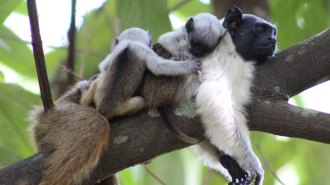 Animals
AnimalsIn noisy environs, pied tamarins are using smell more often to communicate
Groups of the primate, native to Brazil, complement vocalizations with scent-marking behavior to alert other tamarins to dangers in their urban home.
-

The challenges of seeing the profusion of tiny life
Editor in chief Nancy Shute marvels at the diversity of tiny life-forms known as protists.
By Nancy Shute -
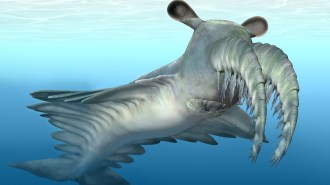 Paleontology
PaleontologyThis ancient, Lovecraftian apex predator chased and pierced soft prey
Half a billion years ago, Anomalocaris canadensis probably used its bizarre headgear to reach out and snag soft prey with its spiky clutches.
By Nikk Ogasa -
 Ecosystems
EcosystemsMarjorie Weber explores plant-protecting ants and other wonders of evolution
Cooperation across the tree of life is an understudied driver of evolution and biodiversity, Marjorie Weber says.
By Meghan Rosen -
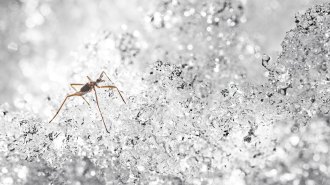 Animals
AnimalsA grisly trick helps snow flies survive freezing: self-amputation
When a snow fly’s leg begins to freeze, a quick amputation can prevent ice from spreading, keeping the cold-hardy insect alive.
By Meghan Rosen -
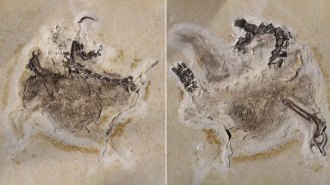 Paleontology
PaleontologyPaleontology has a ‘parachute science’ problem. Here’s how it plays out in 3 nations
When researchers study fossils from lower-income countries, they often engage in dubious or illegal practices that can stifle science.